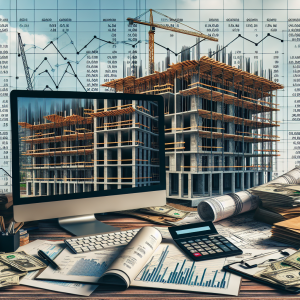Building cost estimates are a crucial aspect of any construction project. Accurately determining the costs involved plays a significant role in planning, budgeting, and ensuring the financial viability of the project. Understanding the importance of precise cost estimates and the key factors influencing building costs is essential for both experienced builders and those entering the industry.
Understanding Building Cost Estimates
Building cost estimates are detailed projections of the expenses associated with a construction project. They encompass various elements such as materials, labor, equipment, and overheads. These estimates serve as a foundation for budgeting and decision-making throughout the project lifecycle.
When it comes to construction projects, accurate cost estimates are vital for several reasons. Firstly, they allow builders to set realistic budgets and avoid cost overruns. By knowing the expected expenses upfront, builders can plan accordingly, secure funding, and avoid potential financial difficulties. This is especially important in large-scale projects where even a slight miscalculation can lead to significant financial setbacks.
Secondly, accurate cost estimates help builders make informed decisions about suppliers, materials, and labor requirements. By having a clear understanding of the costs associated with different options, builders can choose the most cost-effective solutions without compromising on quality. This not only helps in optimizing the project budget but also ensures that the final outcome meets the desired standards.
Additionally, precise estimates can enhance the overall credibility and professionalism of builders, leading to increased trust from clients and stakeholders. When builders are able to provide accurate cost estimates, it demonstrates their expertise and attention to detail. This can have a positive impact on their reputation and can potentially lead to more opportunities for future projects.
The Importance of Accurate Cost Estimates
Accurate cost estimates are vital for several reasons. Firstly, they allow builders to set realistic budgets and avoid cost overruns. By knowing the expected expenses upfront, builders can plan accordingly, secure funding, and avoid potential financial difficulties. Secondly, accurate cost estimates help builders make informed decisions about suppliers, materials, and labor requirements. Additionally, precise estimates can enhance the overall credibility and professionalism of builders, leading to increased trust from clients and stakeholders.
Accurate cost estimates are not just beneficial for builders, but also for the clients and stakeholders involved in the construction project. When clients have a clear understanding of the costs involved, they can make informed decisions about their investment and assess the feasibility of the project. Stakeholders, such as investors and lenders, also rely on accurate cost estimates to evaluate the financial viability of the project and determine their level of involvement.
Furthermore, accurate cost estimates contribute to effective project management. With a solid understanding of the expected expenses, project managers can allocate resources efficiently, monitor progress, and make necessary adjustments to ensure that the project stays on track. This helps in avoiding delays, minimizing disruptions, and ultimately delivering the project within the set budget and timeframe.
Key Factors Influencing Building Costs
Several factors influence building costs in the UK construction industry. Understanding these factors is crucial in producing accurate estimates.
1. Location: The geographical area where the construction takes place can significantly impact costs. Factors such as availability of labor, cost of living, and material transportation expenses can vary from one location to another. For example, building in a remote area might require additional transportation costs for materials and labor, whereas building in a densely populated urban area might have higher labor costs due to increased demand.
2. Type of Construction: The type of construction, whether it is residential, commercial, or industrial, can affect costs. Different types of projects require specific materials, technology, and labor expertise, all of which can impact expenses. For instance, commercial projects often involve more complex designs and specialized equipment, leading to higher costs compared to residential projects.
3. Size and Complexity: The size and complexity of the project play a significant role in estimating costs. Larger projects often require additional resources and more intricate planning, which can increase expenses. Similarly, projects with unique architectural designs or complex structural requirements may involve higher costs due to the need for specialized expertise and materials.
4. Design and Specifications: The design and specifications of the project influence the type and quantity of materials required. Unique or custom features can also impact costs. For example, projects that incorporate sustainable or energy-efficient designs may require specific materials and technologies, which can be more expensive than conventional options.
5. Market Conditions: The state of the construction market, including supply and demand dynamics, can impact costs. Fluctuations in material prices and labor availability can significantly influence the final cost estimate. During periods of high demand, such as a booming economy, construction costs may rise due to increased competition for resources. Conversely, during economic downturns, costs may decrease as contractors and suppliers offer more competitive pricing to secure projects.
By considering these key factors and conducting thorough research, builders can develop accurate cost estimates that reflect the unique characteristics of each construction project. This ensures that all expenses are accounted for, reducing the likelihood of unexpected costs and enabling successful project execution.
Steps to Create a Comprehensive Building Cost Estimate
Creating a comprehensive building cost estimate involves several key steps. Each step contributes to the accuracy and reliability of the final estimate.
When it comes to estimating the cost of a building project, attention to detail is crucial. By following a systematic approach and considering all relevant factors, builders can ensure that their estimates are as accurate as possible.
Gathering Necessary Information
Before beginning the estimation process, it is crucial to gather all the necessary information. This includes project plans, specifications, and any additional documentation. The more detailed and comprehensive the information, the more accurate the estimate will be.
During this step, estimators carefully review the project plans, ensuring that they have a thorough understanding of the scope of work. They also examine any specifications provided, such as the type and quality of materials to be used. Additionally, they may consult with architects, engineers, and other professionals involved in the project to clarify any uncertainties.
By taking the time to gather all the necessary information, estimators can avoid costly mistakes and ensure that their estimates are based on accurate and reliable data.
Calculating Material Costs
Calculating material costs involves analyzing the project plans and determining the quantity of materials required. Builders must consider factors such as material prices, supplier quotes, and any potential discounts or bulk purchasing opportunities. Using specialized software or industry databases can aid in accurate material cost calculations.
During this step, estimators carefully review the project plans, identifying all the materials that will be needed. They take into account the quantity of each material required and research current market prices to determine the cost per unit. Estimators may also reach out to suppliers to obtain quotes and explore any potential discounts or bulk purchasing opportunities.
Furthermore, estimators consider factors such as waste and spoilage, as well as any additional materials that may be necessary for the project, such as adhesives or fasteners. By carefully considering all these factors, estimators can ensure that their material cost calculations are accurate and comprehensive.
Factoring in Labor Costs
Labor costs form a significant portion of the overall construction expenses. Estimators consider the required labor hours, wage rates, and productivity levels when calculating labor costs. It is essential to account for the different skill levels and tradespeople involved in the project.
During this step, estimators carefully analyze the project plans to determine the amount of labor required for each task. They consider factors such as the complexity of the work, the number of workers needed, and the time it will take to complete each task. Estimators also research current wage rates for different trades and skill levels to ensure accurate labor cost calculations.
Additionally, estimators take into account factors that may impact labor productivity, such as site conditions, access restrictions, and the availability of equipment. By factoring in all these variables, estimators can provide a comprehensive and accurate estimate of labor costs.
Creating a comprehensive building cost estimate requires careful attention to detail and a thorough understanding of the project requirements. By following these steps and considering all relevant factors, estimators can provide accurate and reliable estimates that help builders plan and budget effectively.
Common Mistakes in Building Cost Estimation
While estimating building costs, it is crucial to be aware of common mistakes that can lead to inaccurate estimates.
Overlooking Hidden Costs
Builders often underestimate or overlook hidden costs associated with a project, such as permits, inspections, or unforeseen site conditions. These hidden costs can significantly impact the final project budget and must be considered during the estimation process.
Neglecting Market Fluctuations
Market fluctuations, particularly in material prices and labor availability, can catch builders off guard. Failing to account for these fluctuations in the cost estimate can lead to unexpected budget shortfalls or delays during the construction process.
Tips for Improving Your Building Cost Estimates
Builders can enhance the accuracy and efficiency of their cost estimates by following a few key tips.
Utilizing Cost Estimation Software
Utilizing specialized cost estimation software can streamline the estimation process and provide access to up-to-date material prices and labor rates. These software solutions often include advanced features such as cost databases, customizable templates, and automatic calculations.
Regularly Reviewing and Updating Estimates
Building cost estimates are not set in stone and should be regularly reviewed and updated throughout the project lifecycle. As new information becomes available or market conditions change, revisiting and adjusting the estimate ensures its continued accuracy.
The Role of Professionals in Building Cost Estimates
While builders can handle small-scale estimations, complex and large construction projects often require the expertise of professionals, such as quantity surveyors and professional estimators.
When to Hire a Quantity Surveyor
Quantity surveyors specialize in accurately estimating construction costs and managing project budgets. Their expertise is particularly valuable in complex projects with multiple stakeholders, contracts, and cost control requirements.
The Value of Professional Estimators
Professional estimators bring extensive knowledge and experience to the table. They have access to industry insights, databases, and cost benchmarking data that can enhance the accuracy and reliability of cost estimates. Their expertise can ultimately help builders avoid costly mistakes and achieve better project outcomes.
In conclusion, building cost estimates are an integral part of the construction process, providing builders with crucial information for planning and decision-making. By understanding the importance of accurate estimates, considering key factors influencing building costs, and following best practices, builders can improve their estimations and achieve successful and profitable projects.
Ready to take the guesswork out of your building cost estimates? At Cost Estimator, we specialize in providing precise and reliable estimating services tailored to the UK construction sector. Our team of professional estimators employs the latest tools and methodologies to deliver detailed cost analyses, ensuring your project stays on budget from start to finish. Don’t let the complexities of cost estimation hold back your construction plans. Upload your plans today and experience the peace of mind that comes with expert guidance and accurate forecasting.












